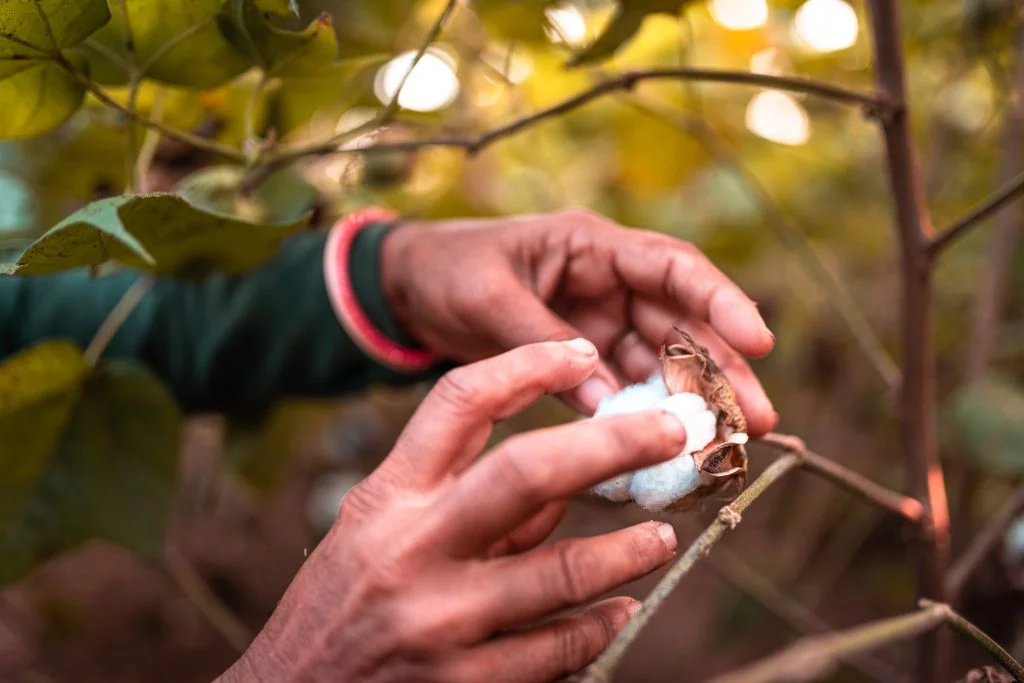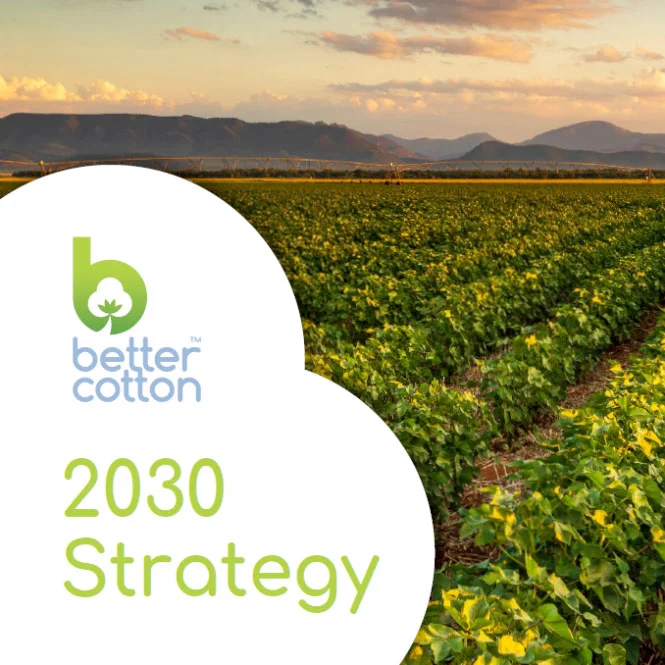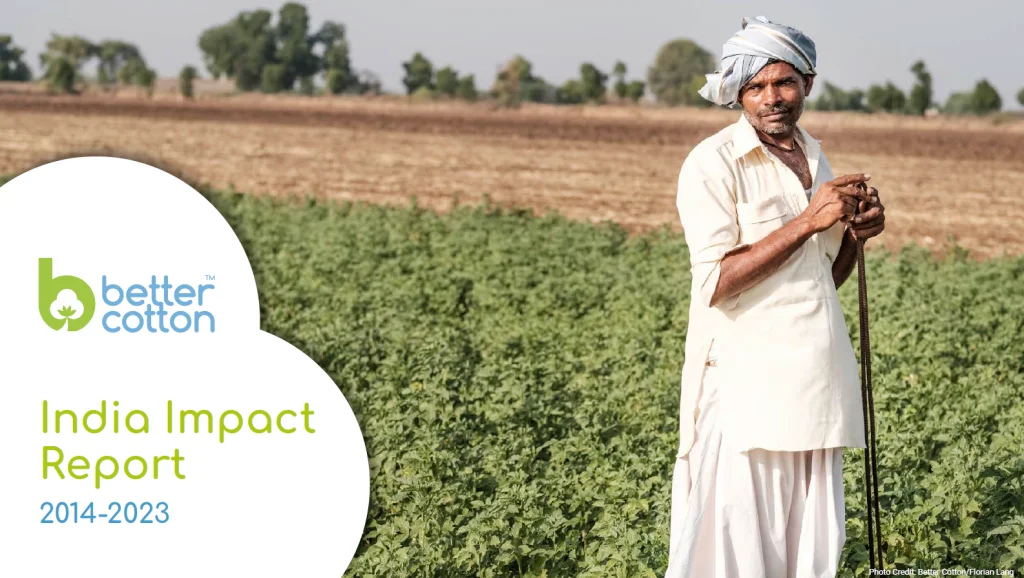- Who we are
- What we do
In just over 10 years we have become the world’s largest cotton sustainability programme. Our mission: to help cotton communities survive and thrive, while protecting and restoring the environment.
- Where we grow
Better Cotton is grown in 22 countries around the world and accounts for 22% of global cotton production. In the 2022-23 cotton season, 2.13 million licensed Better Cotton Farmers grew 5.47 million tonnes of Better Cotton.
- Our impact
- Membership
Today Better Cotton has more than 2,700 members, reflecting the breadth and diversity of the industry. Members of a global community that understands the mutual benefits of sustainable cotton farming. The moment you join, you become part of this too.
- Associate Membership
- Civil Society Membership
- Producer Organisation Membership
- Retailer and Brand Membership
- Supplier and Manufacturer Membership
- Find Members
- Member Monitoring
- Better Cotton Platform
- myBetterCotton
- Resources – Better Cotton Conference 2022
- Complaints
- Whistleblowing
- Safeguarding
- Get Involved in the Better Cotton Programme
- Thank you for contacting us
- Better Cotton’s Data Privacy Policy
- Log in
- Members’ Area
- Request for Proposals
- Better Cotton Cookie Policy
- Web Reference
- Measuring Cotton Consumption
- How to Implement the Chain of Custody Standard
- Resources – Better Cotton Conference 2023
- Certification Bodies Old
- Latest
- Sourcing
- Latest
The founding premise of Better Cotton is that a healthy sustainable future for cotton and the people that farm it is in the interests of everyone connected with it.
Let us help you find what you’re looking for
Results for {phrase} ({results_count} of {results_count_total})Displaying {results_count} results of {results_count_total}

By Leyla Shamchiyeva, Senior Decent Work Manager at Better Cotton
Earlier this year, we unveiled the latest iteration of the Better Cotton Principles and Criteria (P&C), the foundational document that defines our farm-level standard, outlining the global framework for Better Cotton. The revision enhances our field-level standard, ensuring its continued effectiveness in driving continuous improvement and fostering sustainability impact.
One of the standout changes within the P&C is the introduction of the ‘assess and address’ approach to Decent Work. Inspired by Rainforest Alliance’s methodology, this approach departs from a rigid zero-tolerance stance towards infringements, which has historically hampered the open disclosure of issues and eroded trust with partners. Instead, it promotes greater transparency and proactivity in identifying and rectifying issues.
Amanda Noakes, our Global Decent Work and Human Rights Coordinator, elaborates on the approach and how it encourages collaboration in her insightful blog on the subject:
It aims to work together with producers and communities to tackle the root causes of human and labour rights challenges, holistically and collaboratively. It also puts a greater emphasis on supporting and investing in field-level systems and stakeholder collaboration to prevent, mitigate, identify and address issues, so that responsibility and accountability are locally owned and shared.
A great illustration of how the ‘assess and address’ approach works comes from India, where a recent incident highlighted the effectiveness of the strategy. While conducting regular monitoring activities, our Better Cotton Partners in India identified child labour within their project area. The causes were attributed to a combination of pandemic-related school closures and climatic anomalies like excessive rainfall, which resulted in a sudden demand for labour to harvest crops.
In an open disclosure during a regular Better Cotton licensing assessment visit in Maharashtra, India, our Partners candidly discussed their discovery of child labour. In doing so, they demonstrated their commitment to resolving the issue, outlining their robust monitoring mechanisms. Their in-depth understanding of triggers and risk factors, and their proactive measures to mitigate and prevent recurrence, underscored their determination to address the issue holistically. They engaged the local community, raising awareness on preventing child labour, and collaborated with the Child Labour Monitoring Committee to effectively track risks.
Overcoming initial apprehension, the Partners chose transparency and compliance with the Better Cotton Principles and Criteria. Their efforts yielded positive outcomes, notably in the reduction of child labour risks. This success story is emblematic of the ‘assess and address’ ethos. The Partners’ comprehensive approach not only mitigated the recurrence of child labour, but also indicated the strength of their ongoing vigilance to identify and address other issues in the future.
We strongly encourage all our Partners to adopt transparency and proactively tackle challenges, regardless of the complexities they face. We are firmly committed to assisting them in this through practical capacity strengthening on labour monitoring systems. These tools will empower Partners to identify risks, formulate context-sensitive mitigation strategies, and monitor the efficacy of these measures.
Our ongoing pilot programme in India will yield valuable insights to inform the guidance for our Partners worldwide. The ‘assess and address’ approach will become a requirement for all our Partners with the introduction of the revised Better Cotton Standard v3.0 in the upcoming 2024-25 season.
For the sustainability of this initiative, we must also confront the root causes of child labour, encompassing household poverty and inadequate educational infrastructure in rural areas. This demands a collective effort involving government bodies, civil society channels and businesses benefiting from the labour of the farming communities. As a multi-stakeholder organisation, we actively seek meaningful engagement with all stakeholders to support our Partners in achieving enhanced Decent Work outcomes for Better Cotton farming communities. Together, we can truly make a difference and foster sustainable change.
To find out more about the revision of our Principles and Criteria, click here.


